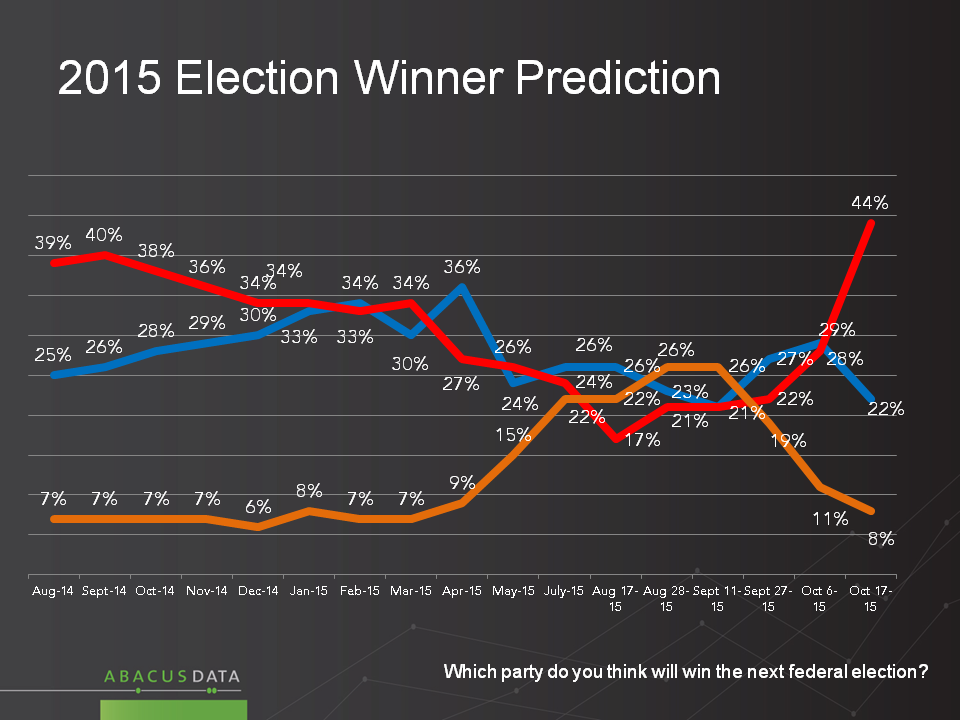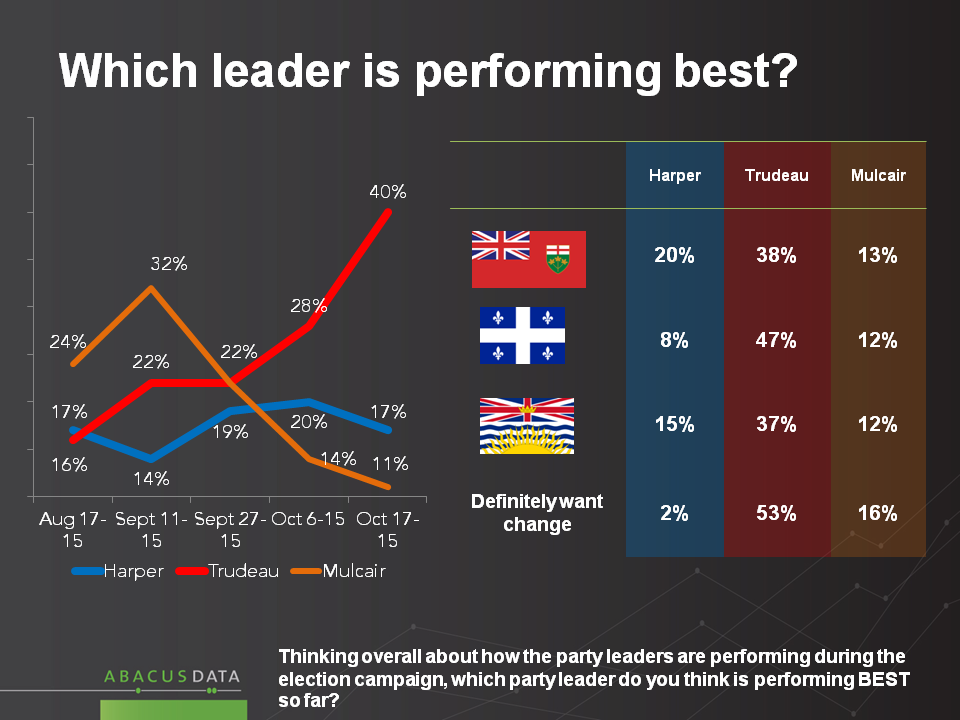Final #elxn42 Poll: Expected Winner and Best Performing Leader
October 18, 2015
Throughout the campaign, we’ve been keeping an eye on how voters are predicting the outcome, as this can sometimes have an impact on their own decisions, strategic or otherwise. In August of 2014, a year before the writs were dropped, 39% thought the Liberals would win, 25% picked the Conservatives and only 7% thought the NDP would win.
Over the months that followed, doubts about the Liberals set in and they dropped 22 points on this indicator, to the point where only 17% picked them as the likely winner, as the writ period began. In the 11 weeks since, predictions of a Liberal victory have shot up to 44%, a new high.
During this year long period the Conservatives hit a high of 36% and have dropped to 22% now predicting a CPC victory. The NDP which rose to a high of 26% this summer, have now dropped back down to 8%.

Much of the shift in momentum has to do with impressions of how the leaders have been performing on the campaign trail. As the campaign period began, Tom Mulcair was picked as the top performing leader (24%), with Justin Trudeau (16%) tied with Stephen Harper (17%).
As the campaign draws to a close, 40% now say Justin Trudeau, a remarkable 23-point gain. Thomas Mulcair has seen a parallel decline of 21 points from his peak, and now only 11% say he has performed best. Stephen Harper was seen as the best performer by 17%.

Mr. Trudeau was seen as the best performing leader by a large margin in Quebec, Ontario and BC. In Quebec, his advantage over the NDP leader on this question was an extraordinary 35 points. Among Francophone Quebecers, the margin was the same, with Mr. Trudeau ahead by 35 points.
Finally among the roughly 60% of voters who most want change in this election, Trudeau was seen as the best performing leader by 53%, compared to 16% for Mr. Mulcair and 2% for Mr. Harper.
Methodology
Our survey was conducted online with 3,103 Canadians aged 18 and over from October 15, 2015 to October 17, 2015 survey from a large representative panel of over 500,000 Canadians, recruited and managed by Research Now, one of the world’s leading provider of online research samples.
The Marketing Research and Intelligence Association policy limits statements about margins of sampling error for most online surveys. The margin of error for a comparable probability-based random sample of the same size is +/- 1.8%, 19 times out of 20. The data were weighted according to census data to ensure that the sample matched Canada’s population according to age, gender, educational attainment, and region. Totals may not add up to 100 due to rounding.




